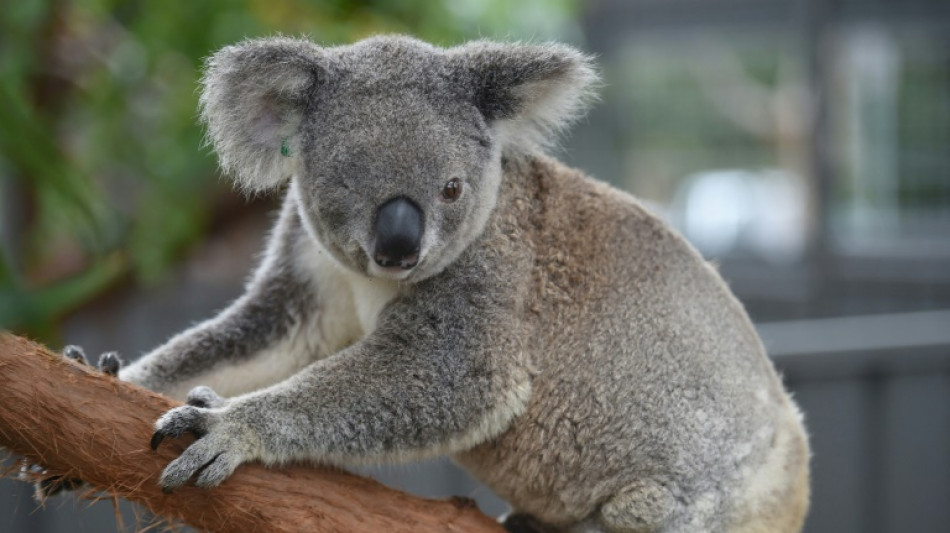
-
 Former England star Flintoff reveals mental battle after car crash
Former England star Flintoff reveals mental battle after car crash
-
Defending champion Korda chases first win of season at Chevron Championship

-
 Olmo fires Liga leaders Barca past Mallorca
Olmo fires Liga leaders Barca past Mallorca
-
Nunes strikes at the death as Man City sink Villa to boost top-five bid

-
 Tesla says profits plunge 71%, warns of 'changing political sentiment'
Tesla says profits plunge 71%, warns of 'changing political sentiment'
-
WHO announces 'significant' layoffs amid US funding cuts
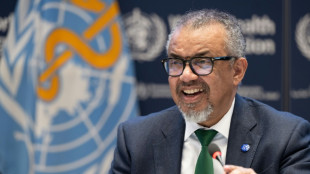
-
 PSG draw with Nantes to stay unbeaten in Ligue 1
PSG draw with Nantes to stay unbeaten in Ligue 1
-
Trump's administration moves to ban artificial food dyes

-
 Gunmen kill dozens of civilians in Kashmir tourist hotspot
Gunmen kill dozens of civilians in Kashmir tourist hotspot
-
US Treasury chief expects China tariff impasse to de-escalate
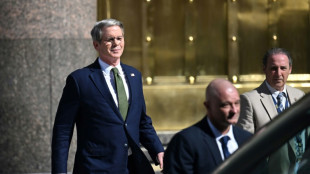
-
 I.Coast opposition leader Thiam barred from presidential election
I.Coast opposition leader Thiam barred from presidential election
-
Top US court leans toward parents in case on LGBTQ books in schools

-
 At least 24 killed in Kashmir attack on tourists
At least 24 killed in Kashmir attack on tourists
-
Rahul powers Delhi to big win over Lucknow in IPL

-
 Colombian cycling star 'Lucho' Herrera denies murder conspiracy
Colombian cycling star 'Lucho' Herrera denies murder conspiracy
-
Trump, Zelensky to attend Pope Francis's funeral Saturday

-
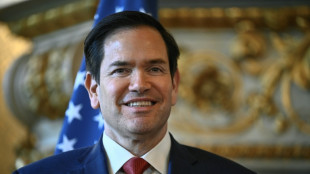 US State Department to cut positions, rights offices
US State Department to cut positions, rights offices
-
Ukraine ready for direct talks with Russia only after ceasefire: Zelensky
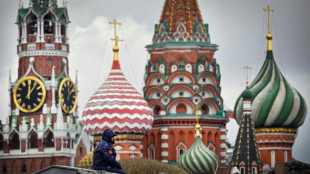
-
 Myanmar Catholics mourn pope who remembered their plight
Myanmar Catholics mourn pope who remembered their plight
-
Pope's Vatican 'family' pay tearful respects

-
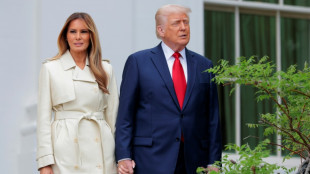 The world leaders set to attend Pope Francis's funeral
The world leaders set to attend Pope Francis's funeral
-
'Like a storm': Witnesses describe deadly Kashmir attack

-
 Volkswagen unveils its electric counter-offensive in China
Volkswagen unveils its electric counter-offensive in China
-
Landmark Nepal survey estimates nearly 400 elusive snow leopards
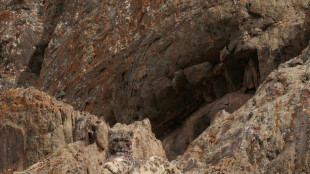
-
 Napoleon letter auction recalls French pope detention
Napoleon letter auction recalls French pope detention
-
Saka injury 'nothing serious' as Arteta weighs Arsenal options

-
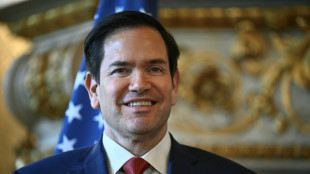 Rubio to cut positions, rights offices at US State Department
Rubio to cut positions, rights offices at US State Department
-
Trump says 'on the same side of every issue' with Netanyahu after call

-
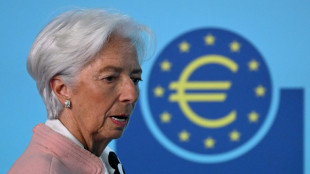 ECB's Lagarde hopes Trump won't fire US Fed chief Powell
ECB's Lagarde hopes Trump won't fire US Fed chief Powell
-
Gold hits record as Trump fuels Fed fears, Wall Street rebounds

-
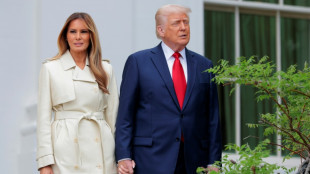 The world leaders set to attend Francis's funeral
The world leaders set to attend Francis's funeral
-
East Timor mourns Pope Francis months after emotional visit

-
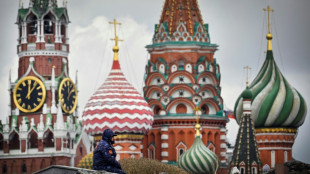 US envoy to visit Moscow as US pushes for ceasefire
US envoy to visit Moscow as US pushes for ceasefire
-
At least 24 killed in Kashmir attack on tourists: Indian police source

-
 Philippine typhoon victims remember day Pope Francis brought hope
Philippine typhoon victims remember day Pope Francis brought hope
-
IMF slashes global growth outlook on impact of Trump tariffs
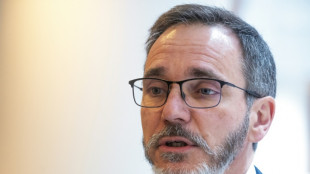
-
 BASF exits Xinjiang ventures after Uyghur abuse reports
BASF exits Xinjiang ventures after Uyghur abuse reports
-
Nordics, Lithuania plan joint purchase of combat vehicles

-
 Gold hits record, stocks diverge as Trump fuels Fed fears
Gold hits record, stocks diverge as Trump fuels Fed fears
-
World could boost growth by reducing trade doubt: IMF chief economist
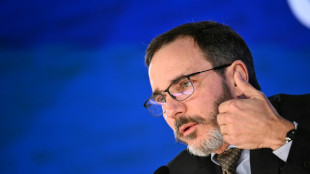
-
 IMF slashes global growth outlook on impact of US tariffs
IMF slashes global growth outlook on impact of US tariffs
-
IMF slashes China growth forecasts as trade war deepens
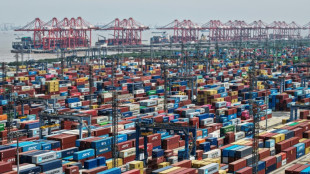
-
 Skipper Shanto leads Bangladesh fightback in Zimbabwe Test
Skipper Shanto leads Bangladesh fightback in Zimbabwe Test
-
US VP Vance says 'progress' in India trade talks

-
 Ex-England star Youngs to retire from rugby
Ex-England star Youngs to retire from rugby
-
Black Ferns star Woodman-Wickliffe returning for World Cup

-
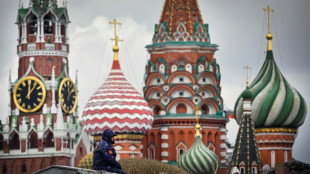 Kremlin warns against rushing Ukraine talks
Kremlin warns against rushing Ukraine talks
-
Mbappe aiming for Copa del Rey final return: Ancelotti

-
 US universities issue letter condemning Trump's 'political interference'
US universities issue letter condemning Trump's 'political interference'
-
Pope Francis's unfulfilled wish: declaring PNG's first saint
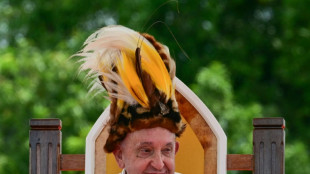

Nature at risk of 'cascading' species extinction: study
Climate change and habitat degradation will cause extinctions that cascade through communities of animals and plants and drive dramatic biodiversity loss, according to new research published on Friday.
The study, in the journal Science Advances, found that chain-reaction extinctions are unavoidable and predicted Earth's ecosystems will see average biodiversity loss of between six and 10 percent by 2050, depending on different carbon emissions scenarios.
By 2100, losses of animals and plants could rise to as much as 27 percent, they found in their research that used virtual Earths to map out thousands of food webs.
The authors said their modelling suggested that the biggest changes will come before mid-century, predicting "the bleakest time for natural communities might be imminent and that the next few decades will be decisive for the future of global biodiversity".
With life on Earth under threat from human destruction, overexploitation and pollution, scientists have warned that a million species are facing extinction in what many fear heralds the planet's sixth mass extinction event.
Climate change is expected to dramatically accelerate the losses, with impacts of warming ranging from the effects of extreme weather, to changes in behaviour and habitat.
But authors of the new study said previous modelling has not included estimates for co-extinctions, based on the "cascading effect" of losses on interdependent species.
The researchers in Australia and Europe built hundreds of virtual Earths each populated with more than 33,000 vertebrate species in thousands of food webs across the planet –- "massive computer latticeworks of 'who eats whom'," said co-author Corey Bradshaw, a professor at Flinders University.
They then simulated different climate change scenarios and projections of habitat degradation -- like deforestation -- to predict local biodiversity loss, the proportion of animalslost in a given area.
- 'Life support' -
The virtual worlds allowed researchers to watch as species moved around and adapted to new environmental conditions and the implications of individual extinctions across food webs.
They found that climate change would be responsible for the greatest proportion of extinction events.
"If you look out your window in 87 years, on average you'll see nearly 30 percent fewer animal species than you do today based on the business-as-usual climate scenario," Bradshaw told AFP.
The study found the greatest threat was in places with the greatest biodiversity -- 36 highly-vulnerable areas containing the most unique species.
"This is because the erosion of species-rich food webs makes biological communities more susceptible to future shocks," said Bradshaw, adding it was "a case of the rich losing their riches the fastest."
The research comes as a UN summit in Montreal attempts to seal a historic "peace pact with nature" and end the rampant destruction.
Global efforts to curb global warming have often eclipsed efforts to tackle the devastation being wrought on nature, but experts have increasingly warned that the two crises are inextricably linked.
"In many ways, biodiversity loss from climate change is far more serious than what climate change will do to human societies, because biodiversity is the very fabric of the Earth's life-support system that makes our lives possible," said Bradshaw.
"The imperative of massive and rapid emissions-reduction policies is made much more urgent knowing this."
L.Janezki--BTB




